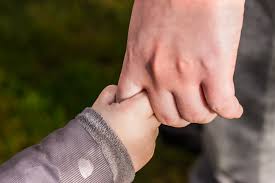Editorial
How we can help foster kids find homes
April 6, 2017
A month ago the Kansas City Star, a newspaper from Kansas City, MO, featured five siblings who were placed in foster care in Kansas State.
Due to the size of the family, the kids have been split up into multiple foster homes but they want to be adopted as a group.
According to AdoptUSKids.org, approximately two-thirds of kids in foster care have one or more siblings also in the system.
Yet, according to statistics from the National Survey of Adoptive Parents, only 11 percent of adoptive parents say that their decision to adopt one child was because they also had care of their sibling.
Adoption itself is never a guarantee, either. According to data from the Adoption and Foster Care Analysis and Reporting System, nearly 428,000 children were in the foster care system in 2015. Of these, at least 111,000 are waiting to be adopted—the futures of the other children are even more up in the air.
Any day now, thanks to the newspaper article and social media sharing en masse, there will be five fewer children in the system and five fewer children waiting to be adopted.
However, these children got something so many other foster kids won’t get: national media attention. They are identified by first names in the news story as Bradley, Preston, Layla, Landon and Olive, and described with little details such as their affection for music, tendency to cuddle or hopes for the future.
These five children, unknown to the world before March 11, became real to millions of Americans overnight, and over 1,600 inquiries flooded into the non-profit organization that works to place foster kids in Kansas.
How many other girls and boys in the system are abstract units within the overwhelming 430,000? Nobody knows their names, their stories, their dreams and their personalities.
AdoptUSKids.org says that 83 percent of families registered through them are interested in taking in sibling groups.
There are families available for foster kids. The 1,600 phone calls and emails about the ‘Kansas Five’ in such a short time should make that clear.
Yet, only one of those inquiries is going to result in a placement. The other 1,599 hopeful adoptive parents are going to go back to their daily lives, with the picture of the five smiling children forever imprinted in their minds.
We can only hope that they realize that those five kids are not the only ones out there.
If each of those families take the time to look into their area’s foster care, they can transfer their enthusiasm into something that brings positive change.
But what can college kids do? Most of us are young, practically penniless, and not ready to take on the family life, especially if it means more than one kid at a time.
We have so many platforms available to us. Young people have voices amplified like at no other time in history by Facebook, Instagram, and the huge realm of web writing, not just on personal blogs, but on mainstream magazine-style sites like The Odyssey and PuckerMob.
We can make every foster kid’s story go viral; this is our generation’s unique and astonishing power. We need to find the stories and share them.
Secondly, we need to stop being so self-centered. Parenthood is not for everyone, and it’s certainly not the time of life everybody is in right now, but we need to stop saying we ‘never’ want kids.
We need to shut up about how we want to travel the world or be able to buy what we want to buy without the responsibility of other mouths to feed.
We need to stop focusing on the fact that having kids means diapers and staying home at night. Instead, we should remember that there are kids out there who may never have a real family.
We need to realize that our dreams of wandering can be shared with young hearts who look up to us.
We need to stop telling society that the children of the world are our collective responsibility to feed and not be willing to personally share our resources with a kid who has no personal resources of his or her own.
We ought to embrace the less than enjoyable experiences that come with children as a small price to pay for the joy of security for another life, and we should stop seeing freedom from responsibility as a nirvana.
The Kansas Five are going to find their forever home. But there are so many kids, in Kansas and around the country, who are still waiting to hear about their futures.
We should be thinking about them all—what we can do to help now with the resources we have and what we can do to prepare our hearts for potentially opening our own homes to them.



